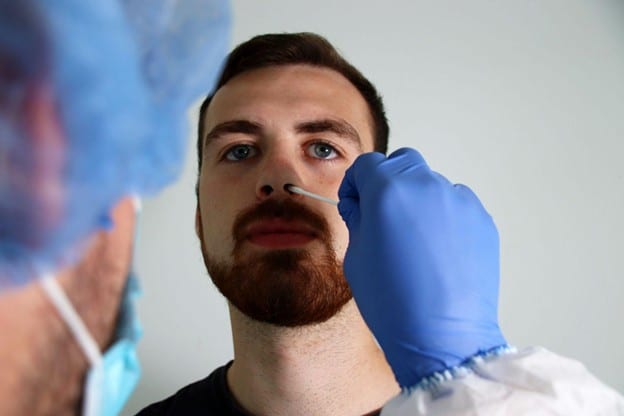What Are Paid Research Studies And How Do They Work

If you’re looking for a flexible way to earn extra income while influencing the development of future products and services, paid research studies may be a perfect fit. From online surveys and focus groups to clinical trials and product testing, these studies offer individuals the chance to provide valuable feedback in exchange for compensation.
In this guide, we’ll explore the different types of paid studies, how they work, what to expect during the application process, and how to choose the right opportunity based on your goals and lifestyle.
Key Takeaways
- Participate in paid research studies to earn extra money.
- Various formats include online surveys and focus groups.
- Your opinions can help shape products and services.
- Compensation for participation can vary depending on the study.
Understanding Paid Research Studies
Paid research studies offer individuals the opportunity to earn money while contributing to valuable advancements in products, services, and technology. Companies, researchers, and organizations use these studies to gain real-world insights from consumers, insights that help shape future innovations, improve user experience, and guide development strategies.
With the global market research industry valued at over $130 billion, companies are investing more than ever to hear from real consumers like you. By participating, you not only earn compensation for your time but also play a direct role in influencing decisions that affect industries ranging from healthcare to retail.
Different Formats of Paid Research
Paid research studies come in a variety of formats, each designed to gather specific types of information. Depending on your interests, background, and availability, you can choose from several common options:
- Clinical Trials: Medical studies that test new treatments, procedures, or medications, often involving health screenings and multiple sessions over time.
- Online Surveys: Quick and easy questionnaires that can be completed remotely, often focusing on consumer habits, preferences, or opinions.
- Focus Groups: In-depth discussions (online or in person) where small groups provide feedback on ideas, ads, products, or services.
- Product Testing: Participants receive new or prototype products to use and review, offering feedback on performance, usability, or design.
Each format has its own purpose, time commitment, and eligibility requirements, allowing participants to choose what best fits their lifestyle.
Benefits of Participating in Research Studies
Taking part in paid studies has multiple advantages beyond the financial reward. Participants can:
- Earn extra income: Compensation is offered in the form of cash, gift cards, or other incentives.
- Influence innovation: Your feedback can directly impact how products and services are improved or launched. In fact, products refined through consumer input have a success rate of 95% in the market, confirming the importance of these studies.
- Learn about market trends: By participating, you gain insights into upcoming products or technologies.
- Enjoy flexibility: Many studies can be completed from home and offer scheduling options to suit your availability.
Here’s a quick comparison of common study types:
| Type of Study | Compensation Level | Typical Duration | Participant Requirements |
| Clinical Research | High | Weeks to Months | Health-related eligibility criteria |
| Online Surveys | Low | Minutes to Hours | General population |
| Focus Groups | Moderate | 1–2 Hours | Age, location, or demographic filters |
| Product Testing | Moderate | Days to Weeks | Interest in relevant product category |
How Does Paid Research Studies Work
Whether you’re contributing to academic research, consumer feedback, or clinical trials, paid research studies play a crucial role in shaping future products and services. Understanding how these studies operate can help you make informed decisions about which opportunities are right for you.
Enrollment and Application Process
Getting started is typically simple and user-friendly. To qualify for these studies, most research platforms or companies will first ask you to:
- Create a profile: You’ll enter basic information such as age, gender, location, occupation, and personal interests. This helps match you to studies that fit your background.
- Complete screener surveys: These short questionnaires determine your eligibility for specific studies based on the criteria researchers are looking for.
- Wait for study invitations: If you qualify, you’ll be contacted via email or the platform with instructions on how to participate.
Most applications take less than a minute to complete, and setting up a full profile increases your chances of getting selected.
Compensation for Participation
The type and amount of compensation can vary depending on the nature of the study:
- Online surveys and short interviews may pay between $0.50 and $5.00.
- Focus groups often offer between $50 and $400 for one to two hours of your time.
- Clinical trials can provide significant compensation, ranging from several hundred to thousands of dollars, depending on the duration and complexity.
Compensation may come in the form of cash, bank transfers, gift cards, or even free products. Always review the payment terms before agreeing to participate to ensure the study meets your expectations.
Potential Risks and Considerations
While many paid studies are low-risk, especially those focused on surveys or product feedback, others, such as clinical trials, may involve greater responsibilities and health-related risks. It’s essential to:
- Read the informed consent form carefully: This document outlines all the known risks, procedures, and your rights as a participant.
- Understand your commitment: Some studies require multiple sessions or follow-ups, which could interfere with your schedule.
- Prioritize safety and privacy: Make sure the organization is transparent about how your data will be handled and that they follow ethical research standards.
By evaluating these factors ahead of time, you can decide which studies are safe, worthwhile, and aligned with your goals.
Conclusion
Participating in paid research studies is more than just a side hustle, it’s a way to influence how products, treatments, and services are developed and improved. By taking part, you can enjoy financial benefits, gain early access to innovative solutions, and contribute to meaningful research that helps shape the future.
Just remember to always review the eligibility criteria, understand your time commitment, and prioritize platforms that protect your privacy and well-being.
FAQ
What are paid research studies?
Paid research studies are clinical trials or research projects that offer financial compensation to participants for their involvement. These studies can range from clinical trials testing new medications or vaccines to surveys and interviews aimed at gathering data for various research purposes.
What is the process for enrolling in a paid study?
To enroll in a paid study, you typically need to find a research opportunity that fits your profile. This can be done by searching online or through local research facilities. Once you find a suitable study, you may need to complete a screening process to determine eligibility and then sign an informed consent form.
Can I choose to participate in a paid study at any time?
While you can express interest in participating, enrollment is subject to specific eligibility criteria and screening processes. Once you are accepted into the study, you can choose to withdraw from participation at any time, but it is advisable to inform the study team.
What types of studies offer financial compensation?
Many types of studies offer compensation, including clinical trials for new drugs or vaccines, paid surveys, and focus groups. These studies are often conducted by pharmaceutical companies, research institutions, or market research firms.
How can I find paid research studies near me?
You can find paid research studies by searching online databases, visiting local research institutions, or checking community bulletin boards. Websites dedicated to clinical research often list available studies and provide information on how to enroll.
Will my personal information be kept confidential during the study?
Yes, reputable research institutions prioritize participant confidentiality. All personal information is typically anonymized or kept secure, and data is used solely for research purposes. Participants should review confidentiality agreements before enrolling.





